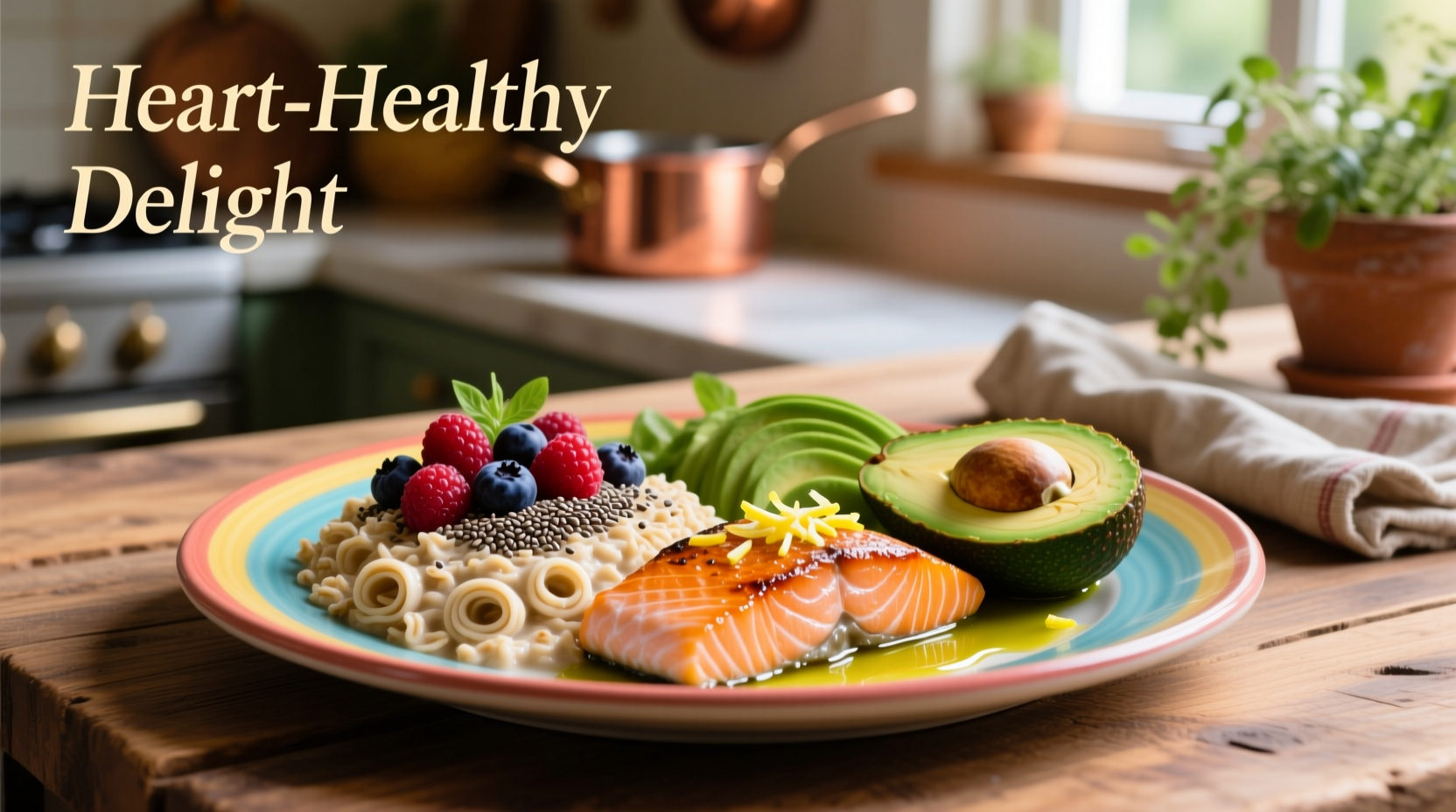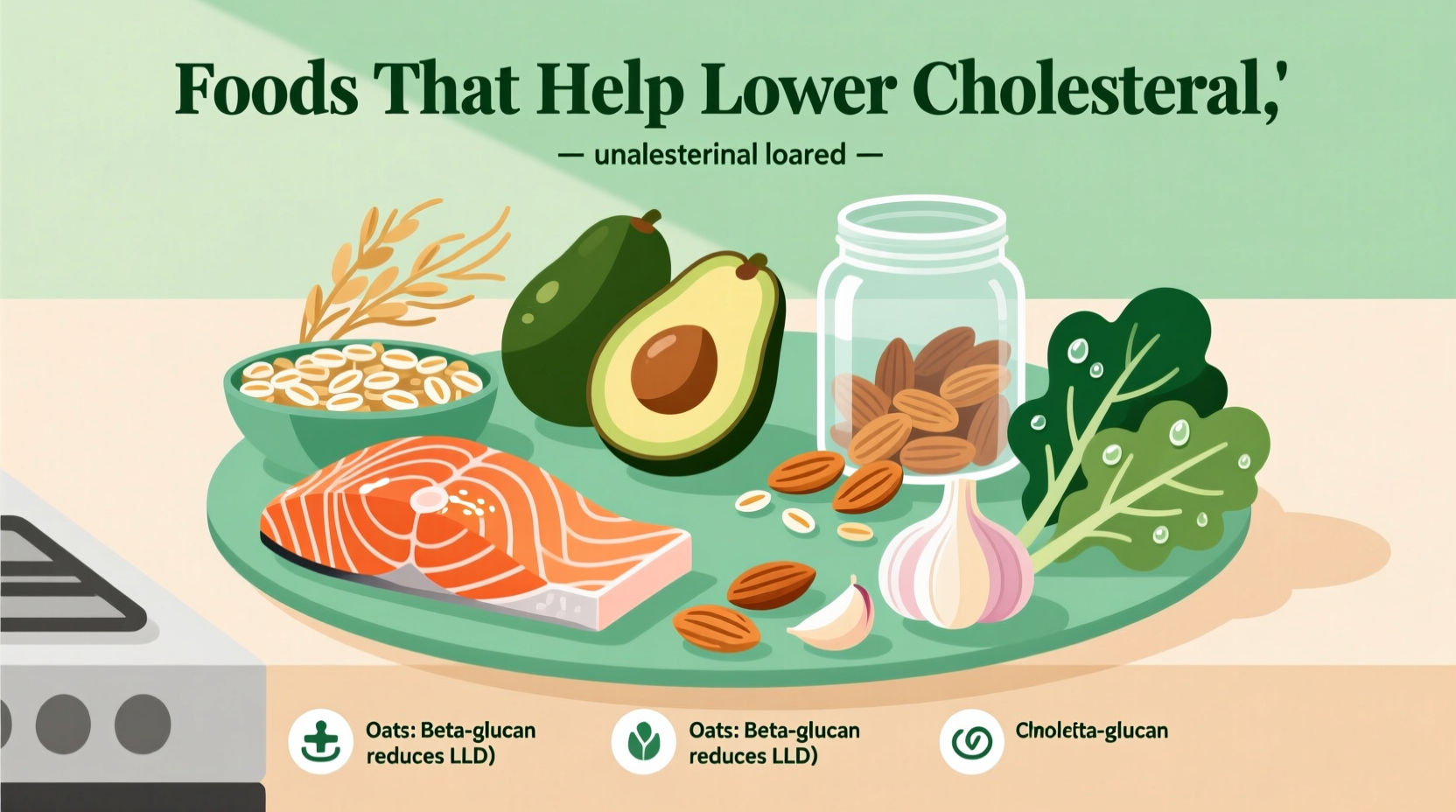Seven scientifically proven foods can effectively lower LDL ("bad") cholesterol: oats, fatty fish, nuts (especially walnuts and almonds), avocados, olive oil, beans, and soy products. Consuming these regularly as part of a balanced diet can reduce LDL cholesterol by 5-15% within 4-12 weeks when combined with other heart-healthy lifestyle changes.
High cholesterol affects nearly 94 million American adults, creating a significant risk for heart disease—the leading cause of death globally. While medication works for some, dietary changes remain the first-line defense against elevated cholesterol levels. Understanding which foods actually work—and how to incorporate them effectively—can make a meaningful difference in your cardiovascular health.
Why Food Choices Matter for Cholesterol Management
Cholesterol isn't inherently bad—your body needs it for cell construction and hormone production. The problem arises when LDL (low-density lipoprotein) cholesterol builds up in arteries, while HDL (high-density lipoprotein) helps remove excess cholesterol. The right foods target this balance by:
- Providing soluble fiber that binds cholesterol in digestion
- Replacing saturated fats with heart-healthy unsaturated fats
- Delivering plant compounds that block cholesterol absorption
Unlike quick-fix supplements, these whole foods offer additional benefits—fiber for digestion, antioxidants for inflammation reduction, and nutrients that support overall cardiovascular function.
Science-Backed Cholesterol-Lowering Foods
| Food | Key Compound | Cholesterol Reduction | Daily Amount |
|---|---|---|---|
| Oats and barley | Beta-glucan | 5-10% LDL reduction | 1.5 cups cooked |
| Fatty fish | Omega-3 fatty acids | Triglycerides ↓ 15-30% | 3.5 oz, twice weekly |
| Walnuts/almonds | Monounsaturated fats | LDL ↓ 5-15% | 1.5 oz (small handful) |
| Olive oil | Oleic acid | LDL ↓ 5-8% | 2 tbsp replacing saturated fats |
| Beans and lentils | Soluble fiber | LDL ↓ 5-8% | 1/2 cup daily |
This comparison shows why a varied approach works best—different foods target cholesterol through multiple mechanisms. The FDA recognizes specific health claims for oats, nuts, and plant sterols based on substantial scientific evidence.
How Long Until You See Results?
Many people expect immediate changes, but cholesterol reduction follows a predictable timeline when consistently incorporating these foods:
- Weeks 1-4: Dietary changes begin affecting cholesterol metabolism; some notice reduced inflammation
- Weeks 4-8: Measurable LDL reductions typically appear (5-7% on average)
- Weeks 8-12: Maximum dietary impact occurs (up to 15% reduction possible)
- Beyond 12 weeks: Continued benefits with maintenance, but additional reductions require other interventions
A 2022 meta-analysis published in the American Journal of Clinical Nutrition confirmed these timeframes across 47 studies involving over 2,000 participants. Consistency matters more than any single "superfood"—the Mediterranean diet pattern consistently shows the strongest results.
Practical Implementation Strategies
Knowing which foods help is only half the battle. These evidence-based strategies ensure you actually get results:
Simple Swaps for Common Meals
- Replace butter with avocado spread on toast
- Use olive oil instead of vegetable oil in cooking
- Add beans to soups and salads for extra fiber
- Choose oat-based breakfasts over refined grain options
Sample Daily Plan for Cholesterol Reduction
- Breakfast: Oatmeal with walnuts and berries (3g soluble fiber)
- Lunch: Lentil soup with olive oil dressing and side salad (5g soluble fiber)
- Dinner: Baked salmon with roasted vegetables drizzled with olive oil (4g omega-3s)

Important Limitations to Understand
While diet plays a crucial role, certain factors affect how much cholesterol reduction you can achieve through food alone:
- Genetic predisposition: Familial hypercholesterolemia requires medical intervention regardless of diet
- Baseline levels: Those with extremely high cholesterol (>190 mg/dL) often need medication alongside dietary changes
- Overall pattern: One healthy meal won't offset consistently poor dietary choices
- Individual variation: Some people respond better to certain foods than others
The American Heart Association emphasizes that dietary changes work best when combined with regular exercise, maintaining a healthy weight, and avoiding tobacco. For those with existing heart conditions or very high cholesterol, consult your healthcare provider before relying solely on dietary approaches.
Common Questions About Cholesterol-Lowering Foods
How quickly can oats lower cholesterol?
Consuming 3 grams of oat beta-glucan daily (about 1.5 cups cooked oats) typically reduces LDL cholesterol by 5-10% within 4-6 weeks. The FDA recognizes this specific benefit based on clinical evidence showing consistent results when oats replace refined carbohydrates in the diet.
Do nuts really lower cholesterol despite being high in fat?
Yes, nuts lower cholesterol despite their fat content because they contain predominantly heart-healthy monounsaturated and polyunsaturated fats. Research shows that consuming 1.5 ounces of walnuts or almonds daily reduces LDL cholesterol by 5-15% while improving overall lipid profiles. The fats in nuts actually displace less healthy saturated fats in your diet.
Can I eat eggs if I have high cholesterol?
Most healthy people can eat 1-2 whole eggs daily without significant cholesterol impact, as dietary cholesterol affects blood cholesterol less than saturated fats. However, those with diabetes or genetic cholesterol disorders may need to limit egg yolks. The American Heart Association states that for most people, saturated fat intake matters more than dietary cholesterol from eggs.
What's the difference between soluble and insoluble fiber for cholesterol?
Soluble fiber (found in oats, beans, apples) dissolves in water and binds to cholesterol particles, helping remove them from the body. Insoluble fiber (in whole wheat, vegetables) supports digestion but doesn't directly affect cholesterol. For cholesterol reduction, focus on getting 5-10 grams of soluble fiber daily through targeted food choices.
How much olive oil should I use daily for cholesterol benefits?
Replacing 2 tablespoons of saturated fats (like butter) with extra virgin olive oil daily can reduce LDL cholesterol by 5-8%. The key is substitution—not addition—to your existing diet. Choose cold-pressed extra virgin olive oil for maximum polyphenol content, which provides additional antioxidant benefits beyond the healthy fats.











 浙公网安备
33010002000092号
浙公网安备
33010002000092号 浙B2-20120091-4
浙B2-20120091-4